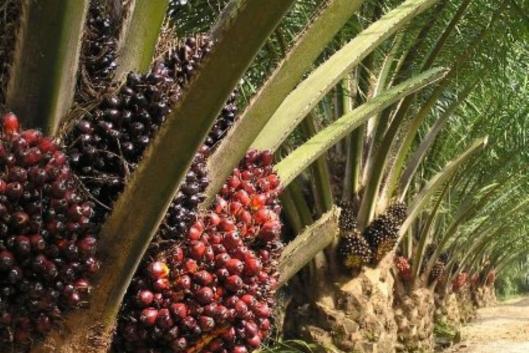Under the slogan ´Our Future is Now´, more than 150 people – men, women, youth and elderly - from communities inside oil palm concession areas in Liberia gathered between 27 and 29 November in Bopolu City – Gbarpolu County - to discuss the expansion of export-oriented oil palm plantations in Liberia and the impacts of this expansion on their livelihoods. Two big oil palm companies are active in Liberia: the Malaysia-based company Sime Darby with a 311,187 ha concession area, conceded through a 63-years contract with the Liberian government, signed in 2009. The company is allowed to plant 220.000 ha of oil palm. The other company active in Liberia is Golden Veroleum, controlled by the Singapore-based Golden Agri company, with a 65-years contract for a concession area totaling 350,000 ha.
The conference meeting was organized by the Liberian NGOs Sustainable Development Institute (SDI), Save my Future Foundation (SAMFU) and Social Entrepreneurs for Sustainable Development (SESDev), and facilitated by members of the Development Education Network in Liberia.
The event allowed an important 3-days exchange of information between communities from Cape Mount County, already affected by the Sime Darby oil palm plantations, and communities from other three counties in the concession area who are still not affected.
Also the participation of international activists from countries with a large experience on the impacts of industrial oil palm plantations, like Indonesia and Nigeria, contributed so that communities could have access to all the relevant information on oil palm plantations and their impacts and listen to what happened in other places to people’s lives and, most important, know about how people organize and struggle in other places to halt industrial tree plantations and, at the same time, guarantee their rights over their territories and livelihoods.
One general complaint that could be heard during the meeting was the fact that people have not been informed, neither asked if they wanted that oil palm plantations would cover huge areas of their territories. Instead they have got many promises from the company of which little or nothing has happened in practice. Several testimonies from the people in Cape Mount County, affected by Sime Darby, mentioned serious human rights violations such as losing of farm land crucial to secure food and food sovereignty to the families. Other complaints included water pollution and the resulting lack of access to safe drinking water. Also the lost of forest areas, on which people severely depend for their livelihoods, was mentioned. Forests also play a role in maintaining religious traditions, which are at risk when oil palm plantations destroy sacred sites in forest areas. Although jobs have been created, also many complaints could be heard about the type of job that has been given – unskilled and often temporary labour – and only to some of the communities; furthermore, people complained about the low salary and the lack of a labor contract that includes the respect of fundamental rights of workers. (More on the impacts of the Sime Darby oil palm plantations can be found in http://www.wrm.org.uy/publications/Liberia.html, a recent publication of SDI produced in collaboration with WRM).
It was concluded that the ongoing large-scale oil palm expansion in Liberia is benefiting especially the companies, and nor the communities neither the Liberian state that through its government signs the concession contract with the companies. It was also mentioned that the contracts cover a much too long period of more than six decades, during which the oil palm companies can make use of the peoples’ lands almost for free. The companies also have right to tax breaks. And after this period, the lands instead of being returned to the communities will be given to the Liberian state.
A new land law now under discussion in Liberia was seen as a crucial process that must be accelerated and could contribute to preventing human rights violations by oil palm expansion in future through guaranteeing effectively the rights of communities over their territories, farmlands and forests on which they depend. Another basic policy that needs to be put in place and emphasized by representatives of farmers organizations, is that governments should support peoples agriculture and strive to food sovereignty for their nations. It is more than evident from all the experiences in Southern countries that small-scale agriculture can guarantee much more effectively peoples livelihoods than large-scale oil palm development. Nowadays, ministers of agriculture from Southern countries that deal both with oil palm concession and with the support to the agriculture of communities use to prioritize the concession to large-scale agribusiness projects, in the detriment of small-scale agriculture that the huge majority of the people practice, and that potentially can much more benefit these people and countries in terms of food sovereignty. Large-scale agribusiness concessions tend to lead to food imports and increases in food prices, which is another violation of people´s basic right to food.
The meeting ended with the formulation and approval of a declaration, signed by the participants from the communities. The document makes an appeal to the Liberian authorities for justice, and declares e.g. that “We are the rightful owners of the land where our communities have made our farms, raised our children, and practiced our traditions”.
The complete declaration can be accessed (in English) in http://www.wrm.org.uy/publications/Declaration%20on%20Oil%20Palm_Bopolu_11_29_2012.pdf, and also a press release was published and can be accessed at http://www.wrm.org.uy/publications/OilPalmLandDeals.LiberiaPresser.12312.pdf
Winnie Overbeek, WRM, email: winnie@wrm.org.uy
